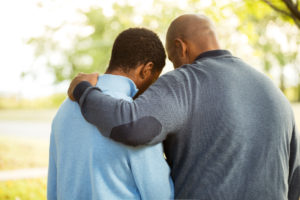While what you are going does not compare to what your loved one is going through, it can be devastating to watch someone you love deal with the aftermath of being a crime victim. You cannot fix everything and you cannot take away their feelings. However, there are steps you can take to help. Keep reading to learn more. If they decide they want to work with a victims’ rights attorney, contact Justice 4 Crime Victims at 949-585-9055 for a free legal consultation.
First and Foremost: Listen to Them
You will want to take action right away. You will want to try and fix the problem for them. When they first come to you to talk about the crime, they do not need you to jump into action. They need you to listen to them. They need you to spend time with them. They need to know that you believe them. This may seem like a waste of time when there are other tasks to take care of, but it is often the most important way you can help a crime victim.
Offer Help with Specific Tasks
Do not want for your loved one to come to you and ask for help. Offer your help whether they have asked or not. If you give a general offer of help and they thank you but do not take you up on it, try to determine a specific thing they may need. For example, offer to help with things like cooking or cleaning, or helping out with their children. It is common that a crime victim can’t think of a specific way for you to help but when presented with options may take you up on it.
Give Them Time to Themselves and Be Careful What You Say
You may assume that they should not be left alone. If they ask you to stay then you can stay, but if they ask for time alone you should give that to them as well. Of course, if you believe they are at risk for injuring themselves, you should not leave them alone – call for emergency help instead. If they are angry at you, do not take it personally. They are processing a lot of emotions.
Do not tell them they are lucky to be alive, or lucky that it wasn’t worse. This is not helpful to them, even if it is true. Tell them you are sorry it happened and that you want to help, even if that help involves sitting silently by their side.
Once they are ready to talk to you about solutions, you can compile a list of things that may be helpful. For example, have a therapist ready to recommend, talk to them about the possibility of pressing charges, and learn about their rights as a victim. If you have questions about the legal aspect of this, contact Justice 4 Crime Victims at 949-585-9055.


